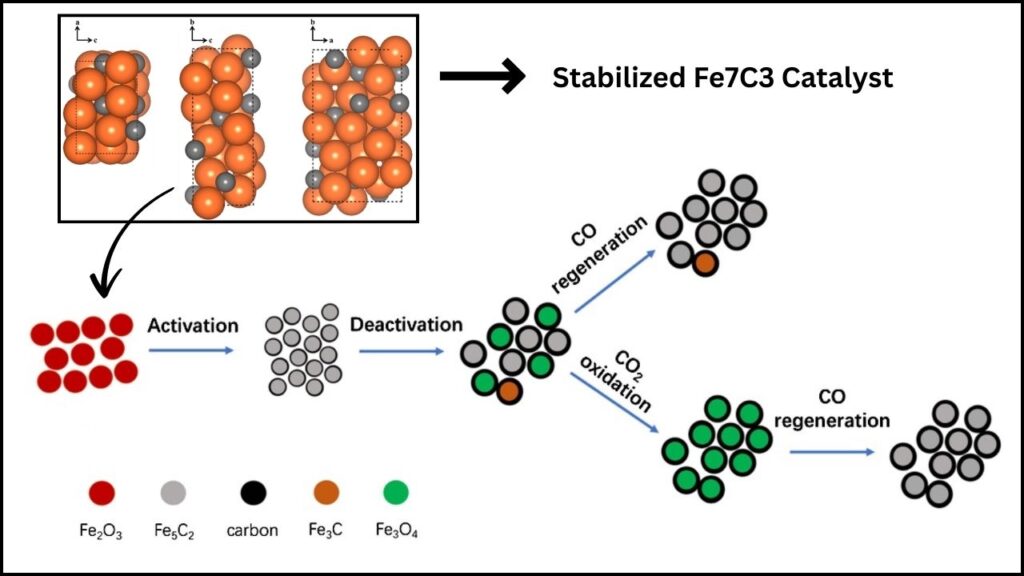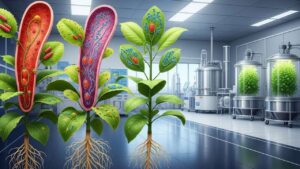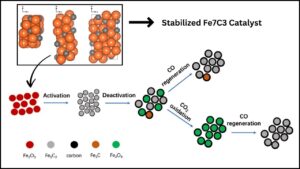Genetically engineered plants now show higher efficiency for sustainable biofuel production, marking a significant milestone in the quest for clean and renewable energy. As the world faces the urgent need to reduce carbon emissions and transition away from fossil fuels, scientists and industry leaders are turning to advanced plant biotechnology to help meet global energy demands. This article will guide you through what genetically engineered plants are, how they’re revolutionizing biofuel production, and what this means for farmers, professionals, and the planet.
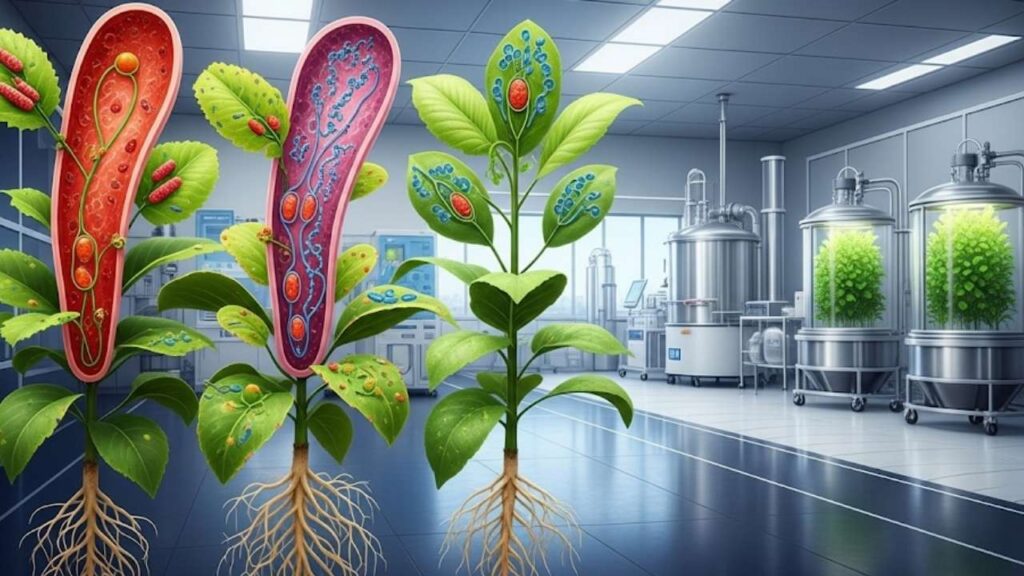
Table of Contents
Genetically Engineered Plants Now Show Higher Efficiency for Sustainable Biofuel Production
| Topic | Details |
|---|---|
| Market Growth | Advanced biofuel market projected to grow at a robust pace over the next decade, driven by innovations in plant biotechnology |
| Yield Improvement | Genetic engineering increases plant oil and biomass yields, enabling more fuel from the same acreage |
| Cost Reduction | Transgenic crops require less severe processing, lowering energy and chemical use in conversion |
| Environmental Impact | Modified crops can be more carbon-neutral and require fewer chemicals for processing |
| Professional Opportunities | Careers in plant biotechnology, bioenergy research, and sustainable agriculture are growing rapidly |
Genetically engineered plants are transforming the landscape of sustainable biofuel production. By increasing yields, lowering costs, and making the conversion process more efficient, these innovations are paving the way for a cleaner, greener energy future. Whether you’re a farmer, scientist, policymaker, or student, understanding and embracing these advances can help you play a meaningful role in the global transition to renewable energy.
Understanding Genetically Engineered Plants for Biofuel
Genetically engineered plants are crops whose DNA has been intentionally modified in the laboratory to enhance specific traits. For biofuel production, these modifications focus on increasing the amount of energy-rich compounds (like oils or sugars), making the plant’s structure easier to break down, or improving resilience to environmental stresses.
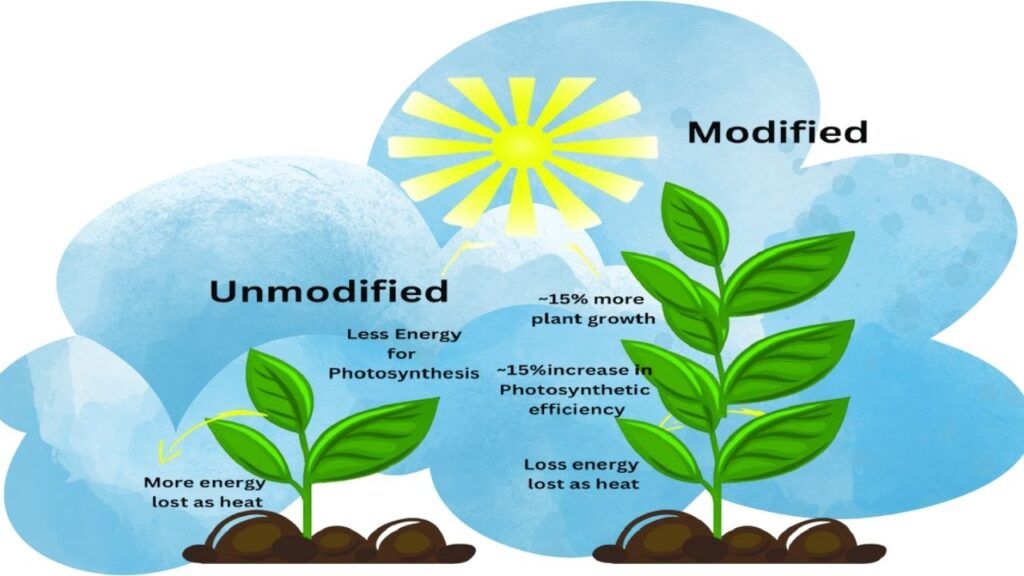
Unlike traditional breeding, which can take years or decades to achieve desired results, genetic engineering allows scientists to introduce changes with precision and speed. This means new varieties can be developed to meet the unique needs of the biofuel industry, from higher yields to easier processing.
Why Biofuels Matter
Biofuels are renewable fuels made from living plants or organic waste. They can be used to power vehicles, generate electricity, and even heat homes. Unlike fossil fuels, which release ancient carbon when burned, biofuels are considered more sustainable because the plants used to make them absorb carbon dioxide as they grow, offsetting emissions.
However, traditional biofuel crops have limitations. They often require large amounts of land, water, and fertilizer, and the process of converting plant material into usable fuel can be energy-intensive. Genetically engineered plants are designed to overcome these challenges, making biofuels more practical and sustainable.
How Genetic Engineering Improves Biofuel Production
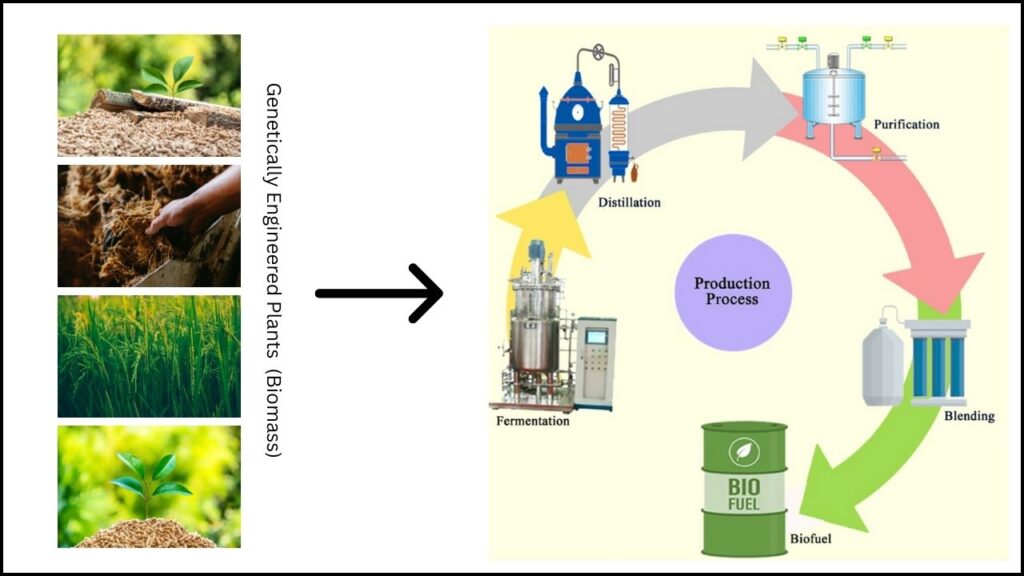
1. Boosting Oil and Biomass Yields
One of the main goals in engineering biofuel crops is to increase the amount of usable material each plant produces. Scientists have identified and modified genes that control how much oil, sugar, or cellulose a plant can store. For example, some engineered crops produce up to 50% more oil in their seeds or tissues than their conventional counterparts.
Higher yields mean that farmers can produce more biofuel feedstock on the same amount of land, which is crucial for meeting energy needs without expanding agricultural footprints.
2. Making Plants Easier to Process
A major challenge in biofuel production is breaking down tough plant cell walls. These walls are made of complex materials like lignin and cellulose, which protect the plant but make it hard to extract the sugars needed for fuel.
Through genetic engineering, scientists can reduce the amount of lignin or introduce enzymes directly into the plant that help break down these barriers. This means less energy and fewer chemicals are needed during processing, making the entire conversion process more efficient and environmentally friendly.
3. Enhancing Stress Resistance
Biofuel crops often need to grow on marginal lands—areas that aren’t suitable for food crops. Genetic modifications can make plants more tolerant to drought, poor soils, or pests, ensuring reliable yields even in challenging conditions. This not only secures the biofuel supply but also helps prevent competition with food production.
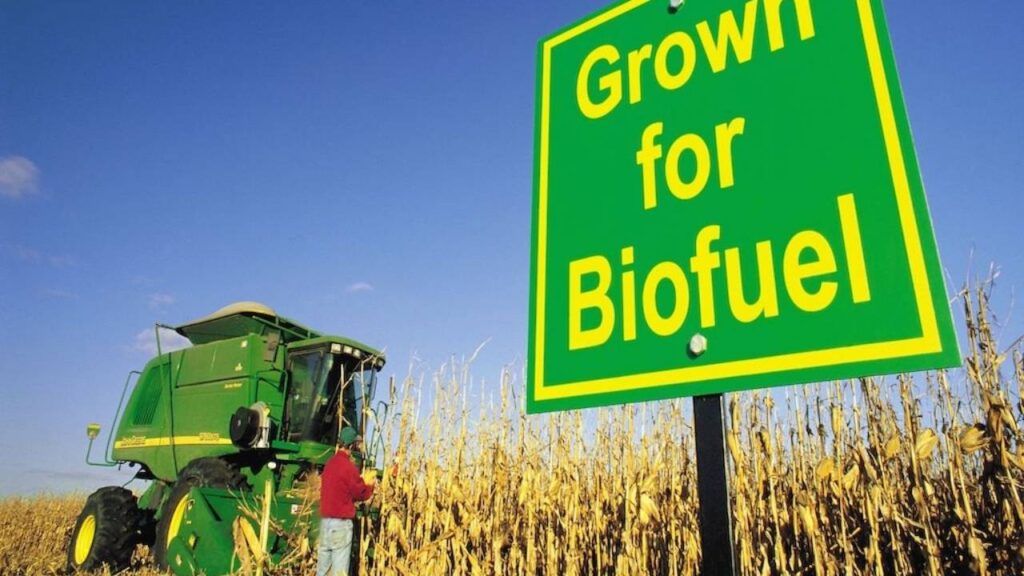
4. Reducing Environmental Impact
By designing crops that require fewer inputs (like fertilizer and pesticides) and that can be processed with less energy and water, genetic engineering helps lower the overall environmental footprint of biofuel production. Some engineered plants are even being developed to capture more carbon from the atmosphere, further enhancing their environmental benefits.
Real-World Examples of Genetically Engineered Biofuel Crops
Sugarcane
Sugarcane is a leading biofuel crop, especially in countries like Brazil. Genetic engineering has produced varieties with higher sugar content and improved disease resistance, allowing for greater ethanol yields per hectare. These advances have helped make sugarcane ethanol one of the most efficient and widely used biofuels in the world.
Switchgrass and Miscanthus
These perennial grasses are valued for their high biomass production and ability to grow on marginal land. By modifying genes related to cell wall composition, scientists have made these grasses easier to convert into biofuels, reducing processing costs and increasing overall efficiency.
Maize (Corn)
In the United States, maize is a primary source of bioethanol. Genetic engineering has led to varieties that produce enzymes within the plant itself, helping to break down starches and cellulose during processing. This innovation reduces the need for added chemicals and lowers production costs.
Camelina and Other Oilseeds
Camelina is an oilseed crop that has been engineered to produce more oil and to thrive in dry, cold climates. The oil from camelina can be converted into biodiesel or used as a renewable jet fuel, providing new options for sustainable transportation.
Step-by-Step Guide: From Genetically Engineered Plant to Biofuel
1. Development and Testing
Scientists identify target traits (such as higher oil content or improved enzyme production) and use genetic engineering techniques to introduce these changes. The modified plants are tested in controlled environments to ensure they perform as expected and are safe for the environment.
2. Field Trials and Approval
Before commercial release, genetically engineered crops undergo rigorous field trials. These trials assess yield, resilience, and environmental impact. Regulatory agencies review the data to ensure the crops are safe for cultivation and use.
3. Cultivation
Once approved, farmers grow the genetically engineered crops using standard or improved agricultural practices. These crops may require less water, fertilizer, or pesticide, depending on the modifications.
4. Harvesting and Processing
At maturity, the crops are harvested and transported to biofuel production facilities. Here, the engineered traits (such as built-in enzymes or reduced lignin) make it easier and more cost-effective to convert the biomass into fuel.
5. Conversion to Biofuel
The plant material is broken down into sugars, which are then fermented by microbes to produce ethanol or other biofuels. Advances in genetic engineering mean this process can be faster, use less energy, and produce higher yields.
6. Distribution and Use
The finished biofuel is blended with or replaces fossil fuels in vehicles, power plants, or other applications, helping to reduce greenhouse gas emissions and reliance on nonrenewable resources.
Practical Advice for Professionals and Stakeholders
For Farmers
- Consider high-yield, genetically engineered varieties to maximize returns and reduce input costs.
- Stay informed about local regulations and market opportunities for biofuel crops.
- Collaborate with biofuel producers to ensure a stable demand for your harvest.
For Biofuel Producers
- Invest in feedstocks that are genetically optimized for your processing technology.
- Work with plant breeders and research institutions to develop custom solutions for your region.
- Monitor advances in plant biotechnology to stay competitive and sustainable.
For Researchers and Students
- Explore careers in plant genetics, biotechnology, and sustainable energy.
- Engage in interdisciplinary research combining biology, engineering, and environmental science.
- Use resources from leading institutions to stay updated on the latest developments.
For Policymakers
- Support research and development in plant biotechnology for renewable energy.
- Create policies that encourage sustainable biofuel production without compromising food security.
- Ensure robust safety and environmental assessments for new genetically engineered crops.
Breakthrough Catalyst Efficiently Converts CO₂ Into Methanol With High Precision
New Organic Batteries Could Be the Key to Cleaner, Cheaper Energy Storage
Scientists Use Lightning to Make Ammonia Out of Thin Air Without Fossil Fuels
FAQs About Genetically Engineered Plants Now Show Higher Efficiency for Sustainable Biofuel Production
What are the main benefits of genetically engineered plants for biofuel?
Genetically engineered plants can produce higher yields, require less processing energy, and have a lower environmental impact compared to traditional crops. This makes biofuel production more efficient and sustainable.
Are genetically engineered biofuel crops safe for the environment?
Extensive testing and regulatory oversight help ensure that these crops are safe for the environment. They are designed to reduce the need for chemicals and can help combat climate change by capturing more carbon.
Can small farmers benefit from these technologies?
Yes, many genetically engineered crops are suitable for small-scale farming and can help improve yields and resilience. Partnerships with cooperatives and biofuel companies can provide additional support.
Do biofuels compete with food crops?
Advances in genetic engineering are allowing the use of non-food crops, agricultural residues, and marginal lands for biofuel production, reducing competition with food crops.
What career opportunities exist in this field?
There is strong demand for professionals in plant biotechnology, bioenergy research, sustainable agriculture, and environmental policy.






